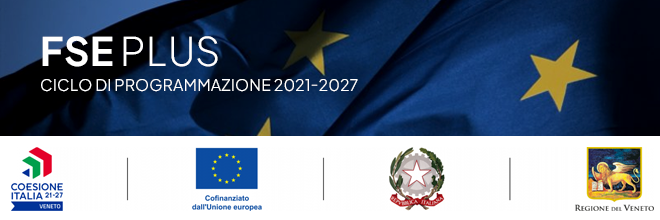Research
Research projects, activities and opportunitiesFor us, research is a fundamental element for social and economic development, contributing to progress, wellbeing and social cohesion.
This is why the University of Verona supports quality interdisciplinary research, international collaborations and the sharing of results to benefit our society, culture and economy.
Departments and research
The University of Verona stands out for its commitment to cutting-edge scientific research, both basic and applied, across a wide range of disciplines.
Research is organized into four major areas, each consisting of departments focused on specific fields. Specifically, the University offers:
- 3 departments in Humanities
- 3 departments in Law and Economics
- 4 departments in Life and Health Sciences
- 3 departments in Natural Sciences and Engineering (with one shared with the Life Sciences area)
This structure fosters a multidisciplinary and innovative research environment, making the University of Verona a key player in scientific and academic development.
Arts and Humanities
Law and Economics
Life and Health Sciences
Natural Sciences and Engineering
Pubblicazioni recenti
Educazione di genere
Gender Education, Gender Studies, Gender Pedagogy
Il quadro politico per l’attuazione dell’ECG nelle scuole secondarie di secondo grado. Sguardi internazionali e implementazioni locali
L’articolo presenta i risultati di una ricerca condotta nell’ambito del progetto GloCivEd, volta ad analizzare le politiche internazionali e nazionali sull’educazione alla cittadinanza globale. Attraverso l’analisi di 22 documenti prodotti dalle principali organizzazioni internazionali e della legislazione italiana (L. 92/2019 e Linee guida 2024), lo studio confronta concetti, valori e significati attribuiti all’ECG nei due livelli di politica educativa. I risultati mostrano che, pur riconosciut...
The Impact of Modern Volunteering on Local Community Experiences: The Moderating Role of Volunteering-related Ambivalence
Modern volunteerism has undergone a broad transformation, which has made episodic and online forms stem. This study investigates (a) how traditional, episodic, and online volunteering affect volunteers’ local com-munity experiences – meant as Sense of Community (SoC), Sense of Re-sponsible Togetherness (SoRT), and social generativity – and (b) the moderating role of volunteering-related ambivalence in this. The results show that only traditional volunteering has a positive impact on SoC, while o...
Traditional, Episodic, and Digital Volunteering: New Perspectives on Social Participation
Volunteering represents a crucial form of social participation. In addition to traditional modalities, more flexible forms ‒ such as episodic and digital volunteering ‒ are increasingly emerging, expanding opportunities for engagement and reshaping both the perceived meaning and social impact of volunteer activities. This qualitative research, grounded in nine focus groups comprising a total of 67 volunteers, undertakes an analysis of the experiences of individuals engaged in the three forms of ...
Il valore di una congettura
L'articolo tratta del valore della congettura nel lessico psicoanalitico freudiano.
Catalogues
IRIS - Catalogo delle pubblicazioni
Il catalogo IRIS, gestito dal consorzio CINECA, raccoglie tutte le pubblicazioni scientifiche dell'Università di Verona
Research professional
“Research Professional” di EX-LIBRIS è uno strumento software per la ricerca di opportunità di finanziamento nazionali e internazionali.
Grandi attrezzature di ricerca
Il Centro Piattaforme Tecnologiche gestisce le infrastrutture tecnologicamente all’avanguardia, cui possono accedere sia i diversi gruppi di ricerca dell'ateneo sia le imprese del territorio e gli atenei limitrofi.
Cerca competenze
Expertise e competenze presenti in ateneoUn vero e proprio motore di ricerca delle competenze di docenti e ricercatori dell’Ateneo.
Attraverso questo strumento ideato dall’Università di Verona sarà possibile individuare i migliori partner per lo sviluppo di progetti di ricerca commissionata.


Marie Curie Individual Fellowship
Scegli Verona per la tua borsa individuale Marie CurieScegli l’Università di Verona come sede per la tua borsa Marie Skłodowska-Curie finanziata dall’Unione europea.
Potrai portare avanti il tuo progetto di ricerca in qualunque disciplina e rafforzare le tue prospettive lavorative.
Scopri di piùPartnerships with universities and research centres
A continually expanding collaboration networkThe University of Verona has obtained important awards for its research in all subject areas. Over the years we have achieved significant results on the national and international scene and have formed networks and agreements with many other institutions and the local community. If you want to collaborate with us, get in touch.
Open to worldwide talent
International researchersAre you a researcher interested in doing research at our university? There are Marie Skłodowoska-Curie individual fellowships, the Rita Levi Montalcini programme and many other programmes that support mobilities for researchers.
Partnerships with companies
Dialogues with the business worldThe University of Verona encourages and supports collaboration with companies through projects that involve the use of innovative technologies, highly qualified research staff and specialised structures such as laboratories, spin-offs and research centres.
Spin off
Ricerca scientifica e imprenditorialitàGli Spin off sono società fondate da docenti e ricercatori per valorizzare commercialmente i risultati delle attività di ricerca e le proprie competenze scientifiche e tecnologiche.
Scopri di più
Visiting Professors
Networking e InternazionalizzazioneL'ateneo promuove la presenza di ricercatori e docenti internazionali per attività di didattica e di ricerca attraverso specifici finanziamenti per la mobilità in ingresso degli ospiti internazionali.
Un Visiting Professor è un docente o ricercatore di alto livello proveniente da un'istituzione straniera, invitato per un periodo limitato a svolgere attività accademiche.
Annualmente vengono pubblicati i bandi "Visiting" ricompresi all'interno del Programma di internazionalizzazione di ateneo che finanziano soggiorni di ricerca e/o di didattica a Verona, oltre che l'attribuzione di interi insegnamenti a docenti internazionali. Inoltre, i Dipartimenti dispongono di appositi finanziamenti, finalizzati ad accrescere la dimensione internazionale della didattica all'interno dei Corsi di studio, anche attraverso la partecipazione di docenti provenienti da atenei europei ed extra-europei.
Visiting ProfessorsWork with us
Competitive application announcements
See the page of competitive application announcements for lecturer and research staff positions
Research funding
The University of Verona invests in research
University grantsThe University of Verona supports pure and applied research with local companies and authorities through two specific funding programmes: University grants for pure research, and Joint Projects - University and Companies.
Find moreHow to fund your research
Funding for research, and relations with the local communityAll the funding opportunities for national and international research activities.
Find more






